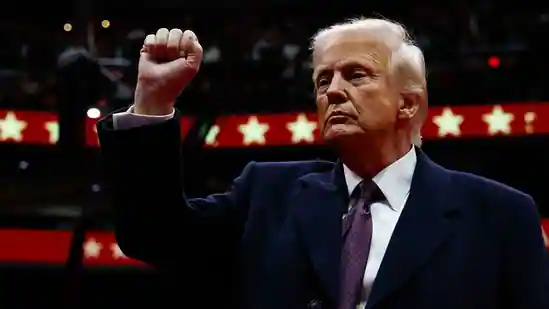India is taking significant steps to repatriate an estimated 18,000 undocumented Indian migrants from the United States, marking a key part of its cooperation with the incoming Trump administration. This move is seen as an early signal from New Delhi of its willingness to comply with the new president’s policies, particularly regarding illegal immigration. The Indian government aims to avoid potential trade conflicts with the US while ensuring its citizens are returned home in accordance with the administration’s crackdown on unlawful migration.
According to individuals familiar with the matter, the US has identified approximately 18,000 undocumented Indian migrants for deportation. However, this number could be much higher, as it remains unclear how many undocumented Indian migrants are residing in the US. Youth from western India, particularly from states like Punjab and Gujarat, are believed to make up the majority of these undocumented individuals.
The Indian government is working behind the scenes to meet the Trump administration’s demands, which have included promises to reduce illegal immigration and implement stricter border controls. President Trump has made it clear that tackling illegal migration will be a top priority during his administration. In exchange for India’s cooperation in addressing the issue of undocumented migrants, the country hopes the US will continue to support legal immigration pathways, such as the student visa program and the H-1B visa for skilled workers, which many Indian citizens rely on.
In 2023, Indian citizens accounted for nearly three-fourths of the 386,000 H-1B visas granted by the US, highlighting the importance of these legal immigration channels to India. India’s involvement in the repatriation process is seen as a crucial step in maintaining its migration agreements with other countries, particularly in light of its growing labor market challenges at home. Prime Minister Narendra Modi’s government has signed several migration agreements with countries like Taiwan, Saudi Arabia, Japan, and Israel in recent years.
The issue of undocumented migration has already been raised in discussions between the two nations. On January 21, 2025, US Secretary of State Marco Rubio met with India’s External Affairs Minister Subrahmanyam Jaishankar in Washington, where they discussed the importance of addressing migration concerns. According to a State Department statement, both sides emphasized the need to cooperate on migration and mobility, ensuring the legal movement of people while curbing irregular migration.
India’s contribution to the number of undocumented migrants in the US remains relatively modest, accounting for about 3% of all unlawful crossings encountered by US border patrol officials in fiscal 2024. However, the number of Indian undocumented migrants has been rising in recent years, particularly at the northern US border, where they now represent almost a quarter of all illegal crossings. This increase has raised alarms and led to greater scrutiny of migration patterns from India.
While the total number of undocumented Indian migrants in the US is still uncertain, a 2022 report by the US Department of Homeland Security estimated that around 220,000 unauthorized Indian immigrants were residing in the country. In response to the growing concerns, India has shown a willingness to cooperate with US border enforcement efforts, including the deportation of over 1,100 Indian citizens in the past year. The most recent repatriation flight, which took place in October 2024, saw more than 100 Indian nationals returned to India.
The repatriation of undocumented migrants also aligns with India’s broader national security goals, including efforts to deter secessionist movements, such as the Khalistan movement, which seeks to create a separate Sikh state. Indian officials believe some of the movement’s supporters in the US and Canada may be among the undocumented migrants. By repatriating these individuals, India aims to curb any potential support for such movements from abroad.
While India’s cooperation with the Trump administration on this issue is a sign of diplomatic goodwill, the country remains cautious about any unpredictable actions from the US president that could lead to a trade war. Trump has previously criticized India’s high import taxes, which he claims hurt American businesses. As the new administration moves forward with its immigration policies, India will need to balance its cooperation on migration with its broader trade and economic interests.
The increasing number of undocumented Indian migrants at the northern US border has raised questions about the reasons behind this trend. Experts suggest that the stop to visa-free travel for Indians to El Salvador in 2023, along with the relative ease of travel to Canada, may be contributing factors. As India continues to engage with the Trump administration, the focus will remain on managing migration flows while safeguarding the rights and opportunities of Indian citizens.

